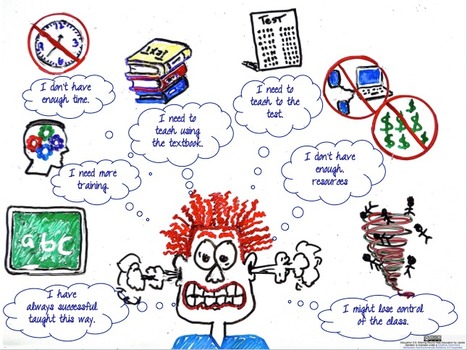by Heidi Grant Halvoson, Ph.D.
"Researchers have uncovered the reason for this difference in how difficulty is interpreted, and it is simply this: more often than not, bright girls believe that their abilities are innate and unchangeable, while bright boys believe that they can develop ability through effort and practice.
"How do girls and boys develop these different views? Most likely, it has to do with the kinds of feedback we get from parents and teachers as young children. Girls, who develop self-control earlier and are better able to follow instructions, are often praised for their "goodness." When we do well in school, we are told that we are "so smart," "so clever, " or " such a good student." This kind of praise implies that traits like smartness, cleverness, and goodness are qualities you either have or you don't.
"Boys, on the other hand, are a handful. Just trying to get boys to sit still and pay attention is a real challenge for any parent or teacher. As a result, boys are given a lot more feedback that emphasizes effort (e.g., "If you would just pay attention you could learn this," "If you would just try a little harder you could get it right.") The net result: When learning something new is truly difficult, girls take it as sign that they aren't "good" and "smart", and boys take it as a sign to pay attention and try harder."



 Your new post is loading...
Your new post is loading...












This chart looks at the difference between a fixed mindset and a growth mindset by looking at eight areas:
* Desire
* Evaluation of situations
* Dealing with setbacks
* Challenges
* Effort
* Criticism
* Success of others
* Result...
You may want to share this with students or other teachers at your school.
Mindset can we use DH to shift user mindsets?
Learning experientially can be more or less painful ... depending on your mindset. You can pick your mindset, and this checklist helps you reflect on what mode you are operating in.